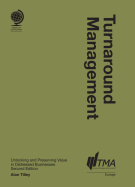Is it possible to create a mindful workplace in a corporate setting?
22 July 2019

Guest blogger - Director of HR & Learning, Pinsent Masons
In our latest guest blog, Jonathan Bond, Director of HR and Learning for Pinsent Masons, discusses the impact of being permanently switched on, how common-sense rules have developed into mindful business practices.
Fifteen years ago, our organisations handed us shiny, new toys. We were thrilled. Our BlackBerrys allowed us to organise appointments, jump on calls with clients and check our emails from wherever we were. All the time. Employers provided basic functional training on how to use them, and sent us on our way.
What we didn’t realise at the time is that having a BlackBerry fundamentally changes your relationship with the working world - and no one gives you training for the psychological impact of being permanently switched on.
How switching on made it impossible to switch off
We may have moved on from BlackBerrys, but that little red flashing light became a symbol of how technology has transformed our working lives. To our subconscious minds, red means ‘warning’, or ‘danger’. Reminiscent of paging doctors and emergency services – yet the reality for most of us is that the level of urgency was far from life and death. As time passed, the lines between urgent and important became blurred and we fell into the habit of compulsively checking our emails.
As technology has improved, it’s become harder and harder for many of us to separate our working lives from our real lives. At Pinsent Masons, we’ve been taking small but significant steps to fight a sometimes-toxic culture of excessive working and burnout among lawyers and create a more mindful workplace.
We recently invited an expert to talk to staff about the relationship between sleep, work and mental health. A consistent seven to nine-hour sleep each night is the most effective thing we can do to reset our brain and body health.
Our screens are a huge barrier to sleep – throwing out information, their blue light confusing us into thinking it’s still daytime. Even so, the biggest impediment to sleep is lawyer culture itself.
Fighting competitive culture
A senior colleague of mine once spent weeks working late every night to show support for his team who were still in the office. One day, a staff member turned around and said, “It doesn’t matter how late we work, you’re always here later.” This manager's well-intentioned act of support was actually exacerbating the problem, putting further pressure on his team to work into the night. By realising the effect and leaving at a sensible time, he set an example and the team soon followed suit, to great effect.
This hyper-competitive culture has become a defining attribute of the legal profession as we all jostle to show who can work the hardest. In the old days, lawyers were given a bonus based on exceeding their chargeable hours target; in the region of 1500 hours a year. This is in addition to all the other hours required for management, business development and administration. Working like this is bad for productivity, bad for health, bad for our lawyers’ relationships and bad for gender diversity – many female employees told us that the culture of focusing on inputs discouraged them for aiming for the next level in their career, or from staying with the firm at all... We found that many female candidates were being put off from the get-go.
Needing to find a better way, we went to our top ten clients and asked them what metrics were most important to them – then based our bonuses on that. It turns out clients don’t care about the number of mindless hours our lawyers clock in. As one client memorably pointed out, they don’t want “busy fools”. They want people fresh, dynamic and energised. We therefore updated our bonus scheme so that it focused on adding value for clients through innovation, efficiency and quality. In short, we started to reward lawyers for outputs more than inputs.
Our Mindful Business Charter
According to the City Mental Health Alliance (CMHA), a survey of law graduates revealed that 73% of respondents had experienced a severe or rare mental health problem. We know that people attracted to the field of law are even more likely to develop mental health issues than medical students. So it’s no surprise that we have lots of people in the business struggling.
We worked with financial services clients and with other law firms to develop what we have called a "Mindful Business Charter", which is a set of agreed common-sense rules about respecting rest periods, and being clear in instructions about what needs to be done, who needs to do it, and when it is required.
In the Mindful Business Charter, we’re helping staff members to build in healthy habits. For starters, we’ve agreed that no one should send instructions to lawyers late on a Friday afternoon – unless it’s urgent, in which case it should be made clear exactly how urgent. We know that otherwise, lawyers will assume it needs to be done immediately – and then there goes their much-needed weekend downtime.
Senior staff are trying to lead by example i.e. not replying to emails at 11pm. I go away for three weeks every August and it’s such a precious break. For me, offline means offline; emails can be like wasps buzzing around your head. Whilst they do free people from their desks and empower people to work flexibly, the nature of a written email with all the commercial trimmings add a layer of formality and ultimately stress, omitting the personality and warmth that can be conveyed in a five minute phone call.
Treating staff like adults
We are also rolling out agile working across the business. While this is unusual in a legal services business, law is actually well-suited to flexible working – with the exception of client meetings, there is a lot of work which can be completed in a range of locations apart from an office.
Senior members of staff have lockers, not desks. This means working in different areas of the office and getting to meet and work with new members of the team every day. With 130 people to 100 desks, we actively encourage people to work at home. When I work from home, I’m still productive, but I enjoy breakfast with my family, walk the dog, and take in the views of the garden and quick chats with my wife throughout the day. Our people say they love the message of trust. From a business perspective, offices that allow flexible working are known to see lower rates of sickness.
We’re at a moment in history where attitudes to work are changing. As they do, it’s important that we learn to be more mindful with our use of technology and strive to improve wellbeing among our bright minds which are dealing with complex client issues. Those minds need to be trained, stretched and rested, just like the bodies and minds of elite athletes.
Collaboration and community is key to our approach to building a more mindful working environment – please do share your own hints and tips with #TalentVoices













Any comments - send us an email